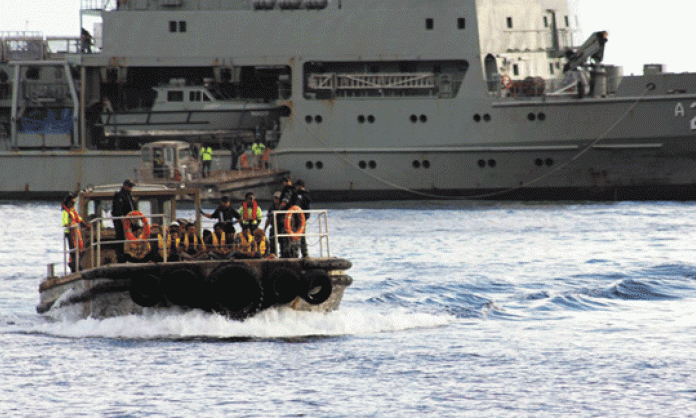Lamis Hameed Alli Baighi, a 36-year-old Kurdish refugee who fled Iran in 2001, was sentenced on 12 March by a Victorian judge to five years’ jail for people smuggling.
Alli Baighi’s crime was to help provide accommodation and supplies to five members of his extended family in Indonesia on their way to Australia in 2009. His family, who fled persecution in Iran, are now permanent residents, while Alli Baighi is locked up for helping them to safety.
Even Victorian County Court Judge Mark Dean, who sentenced Alli Baighi, stated that the mandatory sentence “may give rise to injustice”.
But attorney general George Brandis said the federal government will continue to use mandatory sentences as a “deterrent” to people smuggling. People smuggling is the only offence under federal law that attracts mandatory minimum sentencing.
Pamela Curr of the Asylum Seeker Resource Centre told Red Flag that when mandatory sentencing was introduced in the wake of the Tampa incident in 2001, refugee advocates feared it would “only be a matter of time until we’d see family members charged with helping family members.
“He [Alli Baighi] is being sentenced and jailed with something that people after World War II were celebrated for”, said Curr.
Also in March, Ali Koran Heydarkhani lost his appeal to have a 14 year sentence for people smuggling reduced on the grounds that it was “manifestly excessive”.
Heydarkhani, an Iranian-born Australian citizen, pleaded guilty to organising four boats to travel from Indonesia in 2010 and 2011, including a boat that sank off Christmas Island, killing 50 people.
It was the ALP government that was responsible for the tragedy on Christmas Island. Kevin Rudd made people smuggling the centre of his anti-asylum seeker rhetoric in April 2009, when he declared that people smugglers were the “absolute scum of the earth”.
But the targets were always asylum seekers. “People smuggling was a misnomer from the very beginning”, explains Curr. Refugees arrive in Indonesia and find that they can’t leave, so they have to find informal means of getting to Australia.
The government’s policy of confiscating and destroying asylum seeker vessels means that those people are forced onto the cheapest and least seaworthy boats available.
People smugglers are not the problem. The criminalisation of human movement is the problem.
[Follow Kim on Twitter @kim_doyle1]








